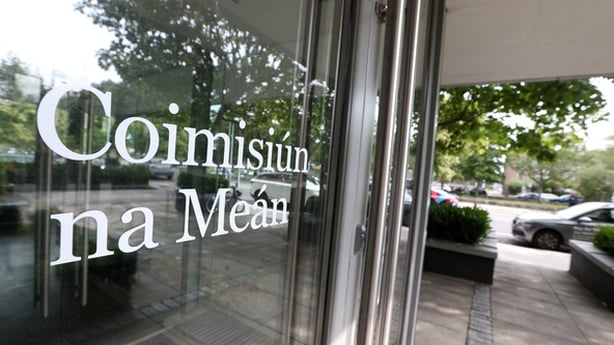Members of the public are being asked for their views on a new Online Safety Code designed to protect users of video-sharing platforms.
The media regulator, Coimisiún na Meán, has opened a public consultation on the code.
Once the new rules are established, they will be legally binding and platforms will face fines of up to €20m for breaches of the code.
Social media firms will have to protect children from specific types of harmful online material including cyberbullying, content that promotes eating disorders, and content that promotes self-harm or suicide.
The measures include using robust age verification technology to make sure that children are not exposed to inappropriate content, such as pornography.
As part of these measures, parents must also be given the tools to ensure that children do not encounter illegal or harmful content online.
Platforms will have to prevent the uploading or sharing of a range of illegal content, including incitement to hatred or violence.
They will also have to provide media literacy tools for users, which can help people recognise disinformation and misinformation.
After consultation, the finalised code will form part of Ireland's overall online safety framework which will also include the EU Digital Services Act and the EU Terrorist Content Online Regulation.

Because so many of the big tech firms have their European headquarters here, Ireland will play a leading role in the policing of the new EU online safety rules, a task that will fall to Coimisiún na Meán.
Online Safety Commissioner Niamh Hodnett said the publication of a draft Online Safety Code is a milestone in the move from self-regulation by platforms to effective regulation.
We need your consent to load this rte-player contentWe use rte-player to manage extra content that can set cookies on your device and collect data about your activity. Please review their details and accept them to load the content.Manage Preferences
"The draft code was informed by the views gathered as part of a call for inputs during the summer from civil society organisations and industry," Ms Hodnett said.
"These insights were extremely valuable in helping us to develop a robust code. We are now inviting members of the public to have their say in this critical part of our new online safety regime," she added.
There has been renewed focus on the role of social media companies when it comes to the removal of harmful content and disinformation following last month's stabbing incident and subsequent riots in Dublin.
Following the unrest, Coimisiún na Meán, along with the European Commission, met with online platforms to discuss their response and said it remains concerned about the spread of misinformation and disinformation online, and its real-world impacts.
Ms Hodnett told RTÉ's Morning Ireland that she had informal contact with all of the main social media platforms about the unrest, raising concerns about incitement to hatred or violence.
She said the social media platforms responded by saying they had stood up incident response plans to address it.
Ms Hodnett said: "They all engaged with us the next day. I don't want to single out a particular company but all the platforms engaged with us as well as the European Commission in the aftermath of the riots.
"All of them engaged constructively with us, now engagement is not the same as compliance, and the European Commission, who is the Digital Services Act enforcer, is assessing these matters."
The public consultation on the new Online Safety Code is open for responses until 19 January 2024.
Once it closes, the code will be finalised and Coimisiún na Meán will seek the approval of the European Commission for its implementation.







